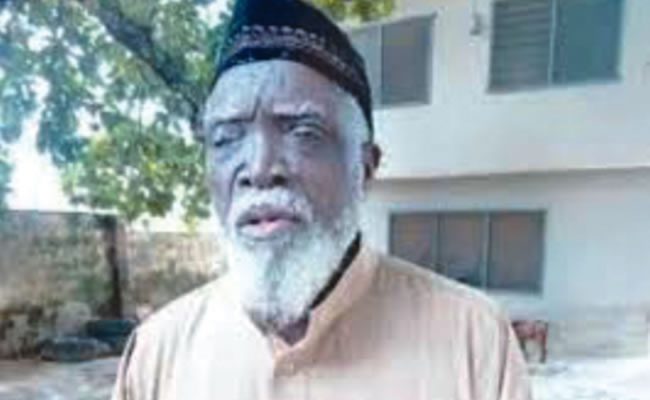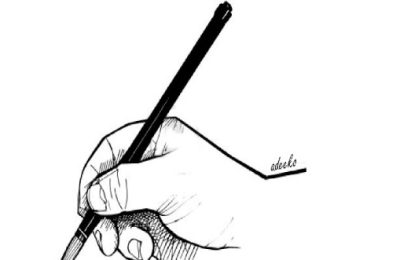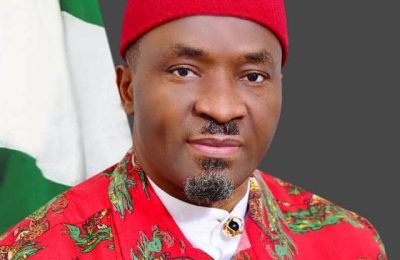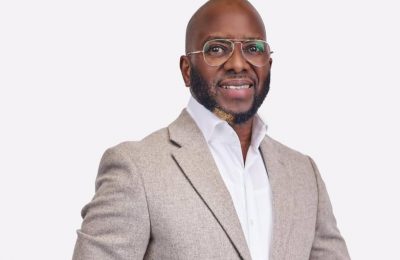THE many faces in his expansive Olanrewaju Adepoju Close, Idi Orogbo area of Fodacis area of Ring Road, Ibadan, were not particularly mournful. They were not smiling either.
It was a collection of people from all walks of life who have accepted the finality of death. The faces were a depiction of the helplessness of humans – mortals in matters of necrology.
The mourners were in his home to pay their respects and to also commiserate with the family he left behind on the loss of their patriarch.

In the evening of Sunday, December 10, 2023, Alhaji Mashood ‘Lanrewaju Adepoju joined his ancestors and became a memory. He transformed into thoughts of what he did while here and how he did them – of what he would be remembered by.
Many young Nigerians are wondering who was Lanrewaju Adepoju and what exactly made him such a household name among their fathers and mothers. Lanrewaju Adepoju was a poet, a writer, a theatre arts practitioner, a singer, an activist and social commentator who dared the odds to climb tenaciously to the height of fame.
He was so very proficient in Yoruba poetry (ewì) that he made name in that genre of the arts. His many Ewì albums were hugely popular and were mostly commercial successes in the 1970s and 1980s.
Chief Lanrewaju Adepoju’s path to success was strewn with many obstacles which he faced and overcame through grit and determination.

He once stated in a 2004 interview with the Nigerian Tribune that he learnt to read and write by himself and not because he saw the four walls of any educational institution. His parents, he said, never enrolled him in any kind of educational institution as a boy in his Aba Oke Pupa in Ibadan.
However, his relentless desire to learn and meet the standards required of any modern young person drove him to learn how to read, write and speak English.
“My parents never sent me to school. I never went to school for one day. I had cousins who were in school in the town. They visited our village during the holidays and we would play together. We would go hunting for fruits and animals and sometimes, they would switch to the English language which I didn’t understand. Then, I would be shut out. I would feel bad whenever this happened. Then I decided that I would get western education.
“I began to save my earnings from basket weaving, a craft I’m adept at; firewood-hewing, picked kola nuts and so on. I saved the money from these ventures until I got one and a half pence with which I bought my very first book, ‘ABD Olope’.
“One of my younger cousins, Muili Oyedele, who had obtained the First School Leaving Certificate by then, was my first teacher. He taught me the direction of the alphabets and in one week, I had finished the book and was proficient in it. I built on this knowledge until I could read other texts and literature materials. I sometimes even stopped people on the road to seek their help with some words or English expressions.” He described the Western State Library his “second home” in those days.
Among other things, he worked as a barber, manual embroider (jákàn) and newspaper vendor at various times. He was examined by Chief Adebayo Faleti and was found worthy of employment at the WNBS/WNTV.
His first poetry rendition on the broadcast station was in 1964, through this, he started the once popular early morning Ewì on radio in the South West of Nigeria.
He had over 80 albums all of which were Ewì and, sometimes his renditions irked the military administration in power at that time.
As an activist and social commentator, he was arrested more than five times during the regime of former military president, Ibrahim Babangida.
Muhammadu Gambo as the Inspector-General of Police then invited him to Lagos and he was detained at Iyaganku several times.
He advised that anyone who would be a poet must not be timid and should be ready to weather the storm of various kinds of adversaries. If you must speak against evil and vices in all places, you must be prepared to damn the consequences.
Adepoju was born June 30, 1940.
YOU SHOULD NOT MISS THESE HEADLINES FROM NIGERIAN TRIBUNE
GSK/P&G exit: Why investors are leaving Nigeria — Atedo Peterside
Founder of Stanbic IBTC Bank, Atedo Peterside has revealed cogent reasons investors are running away from…
How my client raped me during ritual at his house — Female traditional healer
A 26-year-old South African female traditional healer has narrated her horrifying experience of being allegedly raped by…
Naira falls to N1,099/$, closes gap to parallel market value
The official foreign exchange (FX) market on Friday oscillated downwards, thereby shrinking the gap/spread between the official and…
RIVERS CRISIS: Wike’s loyalists restrategise, insist on Fubara’s impeachment
IN spite of the intervention of President Bola Tinubu in the face-off between Governor Sim Fubara of Rivers State and his predecessor, Mr Nyesom Wike, there are…
Why the north suddenly cares about northern lives
It should be made clear from the outset that I am overwrought with immense grief by the heartbreaking but…
Naked Olympics: Sporty naturists take to the beach in Rio to compete at the Naked Olympics
A group of brave nudists are competing in Rio’s NAKED Olympics every weekend, in a stripped back version of…







